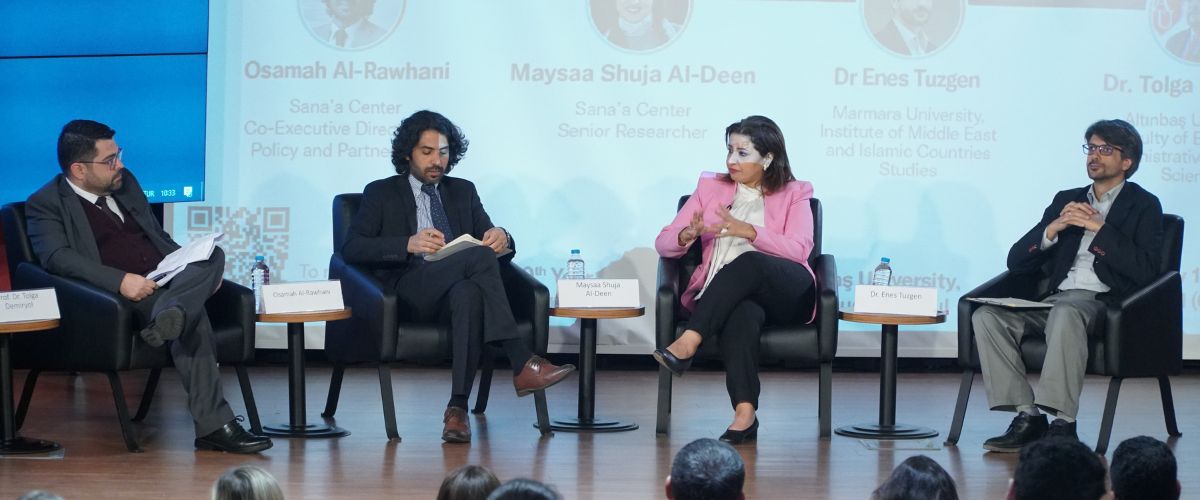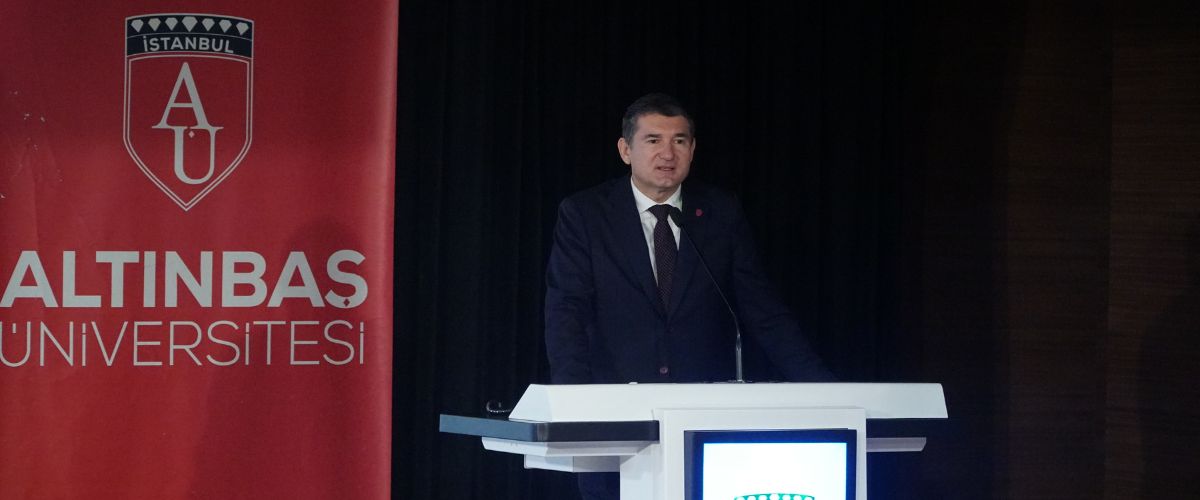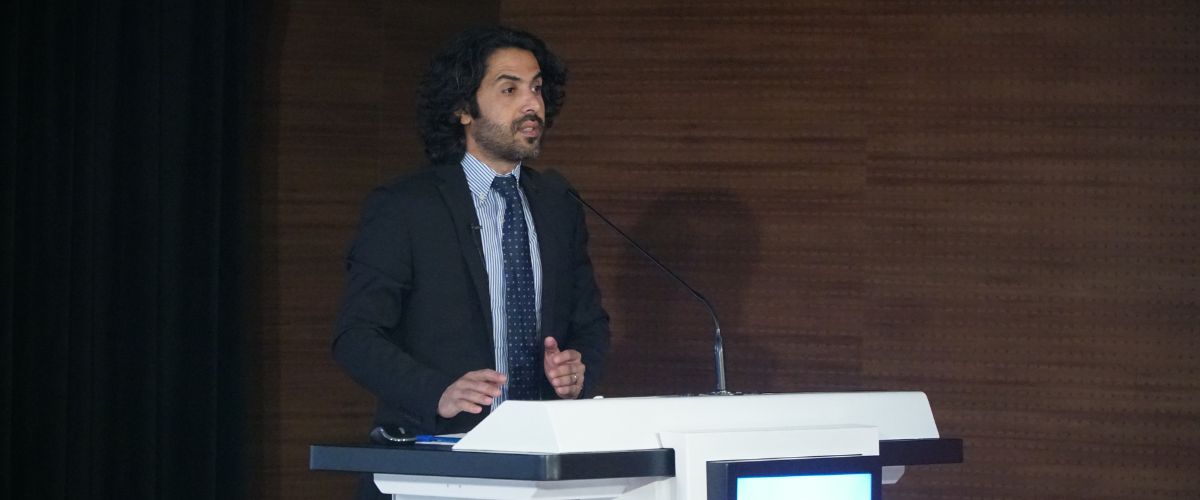Hot Address of Conflicts: Yemen and the Red Sea
Altınbaş University, SANA'A Strategic Studies Center and the Ministry of Foreign Affairs organized Navigating Troubled Waters: Regional Dimensions of the Conflict in Yemen and the Red Sea panel and talked the regional and global impacts of the conflicts.
Altınbaş University, SANA'A Center for Strategic Studies and the Ministry of Foreign Affairs organized “Navigating Troubled Waters: Regional Dimensions of the Conflict in Yemen and the Red Sea“ panel was held at Altınbaş University. In the panel, the regional and global effects of the conflicts in the region were evaluated.
Altınbaş University Rector Prof. Dr. Çağrı Erhan stated that the developments in and around Yemen have not only regional but also global implications. Prof. Dr. Çağrı Erhan started his opening speech by reminding our common religious and historical ties with Yemen and said, “No matter how distant the geographies are, the memories of these two countries are very close in our hearts. Yemen has a special importance for us as Altınbaş University. More than 150 Yemeni students continue their education under this roof. Our internationalization strategy includes countries in the nearby region, especially in the Middle East and Africa. Since the establishment of our university 16 years ago, we have had very close ties with Yemeni educational institutions.”
Stating that the university has many Yemeni graduates, Prof. Dr. Erhan said, “We are very proud when we meet our graduates during our trips abroad. Many of our students who graduated from our university are working in prestigious public and private sector enterprises today. This is a source of great happiness for us.”
The panel organized by the Department of Alumni Relations and Internationalization was moderated by Prof. Dr. Tolga Demiryol, Dean of Altınbaş University Faculty of Economics, Administrative and Social Sciences. The speakers of the panel were Mustafa Pulat, Ambassador of Türkiye to Yemen, Osamah Al-Rawhani, Director of Cooperation and Policies at SANA Strategic Research Center, Maysaa Shuja Al-Deenü, Senior Researcher at SANA Strategic Research Center, and Dr. Enes Tuzgen from Marmara University Institute for Middle East and Islamic Countries.
Ambassador Mustafa Pulat emphasized the sensitivity of Yemen on Türkiye's agenda and said: “Although the current situation deeply saddens us all, our belief that the Yemeni people will overcome these difficulties is unshakable. Türkiye is a strong supporter of Yemen not only politically and economically but also academically. It is important to understand how Yemen has reached its current situation and what challenges lie ahead on the path to peace.” Stating that Türkiye has been following the Yemeni crisis very closely from the very beginning, Ambassador Pulat said, “Türkiye's basic approach is to support international and regional efforts to bring peace to Yemen. In this context, we are in contact with various parties.”
Osamah Al-Rawhani from the SANA Center for Strategic Studies said that in cooperation with different institutions around the world, they want to provide a context and reality of what is happening in Yemen. He explained that the Center, which was established in 2014, conducts extensive research in various fields such as the Yemeni transition, politics, economy, water and environment. This research is conducted in collaboration with both local and international partners, and the data and analysis documented provides a solid basis for understanding the current situation in Yemen and for future planning. Osamah Al-Rawhani said that Yemen and Türkiye have a long political and social history in different eras and added: “Türkiye's approach to the conflict in Yemen is very important. The interests of both countries have been greatly affected by the conflict.”
Osamah Al-Rawhani mentioned that the crisis has also deeply affected the world economy and said, “The conflicts have drastically changed maritime transportation. The inability to use the trade route through the Red Sea for security reasons caused a serious disruption in the world supply chain. Energy markets have been negatively affected. About 1% of the world's oil passes through here. Container prices have increased by 200% to 400%. This has not only affected prices but also insurance fees. There are a lot of people who are not interested in what is going on in Yemen. However, if insurance fees continue to increase, it will create a major crisis in the future.”
Al-Rahwani also stated that in order to ensure a lasting peace in the country, it is essential to end the conflicts in Yemen and to conclude a comprehensive peace agreement. “Peace requires the participation of local, regional and international actors. As for how to rebuild the country and restructure institutions, this is a very complex process.”
Emphasizing the need for the support of the international community and development organizations in the reconstruction process, Al-Rahwani said, “Technical and financial assistance from these organizations can contribute to the sustainable reconstruction of Yemen. However, the active participation of the local population and civil society organizations should also be ensured.” “The needs and expectations of the local population should be taken into account in the reconstruction process, and a more inclusive and sustainable development model should be created with their contributions,” Al-Rahwani concluded.
Maysaa Shuja Al-Deenu from SANA Center for Strategic Studies provided information on the main actors of the conflict, their policies and the links between them. Maysaa Shuja Al-Deenu pointed out that the Houthis, the most well-known group in the international arena, have been linked to Iran since their emergence, and said: “They have been constantly moving from one war to another since 2004, despite the fact that they have no political experience. They are also fighting with the government forces. Iran has a heavy influence in terms of weapons and military training. After the ceasefire with Saudi Arabia, they became more engaged in their economy, investors, exports and defense. This means we need to secure ourselves and stop the war. Maybe it is time to discuss the ceasefire.”
Dr. Enes Tuzgen from Marmara University Institute for Middle East and Islamic Countries also touched upon the roles of regional and global actors and stated that Türkiye is doing its best to end the military crisis in Yemen in line with its policy of consistency.





